Data Deficits Undermine Procurement Governance
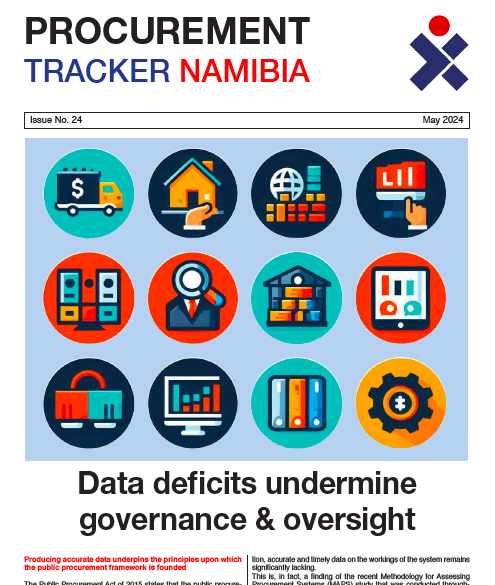
Take a look at our first Procurement Tracker of 2024 which dives into the pressing issues of data deficits, explores the importance of open contracting, and uncovers how the ATI law intertwines with public procurement.
Guide to the Access to Information Law #3
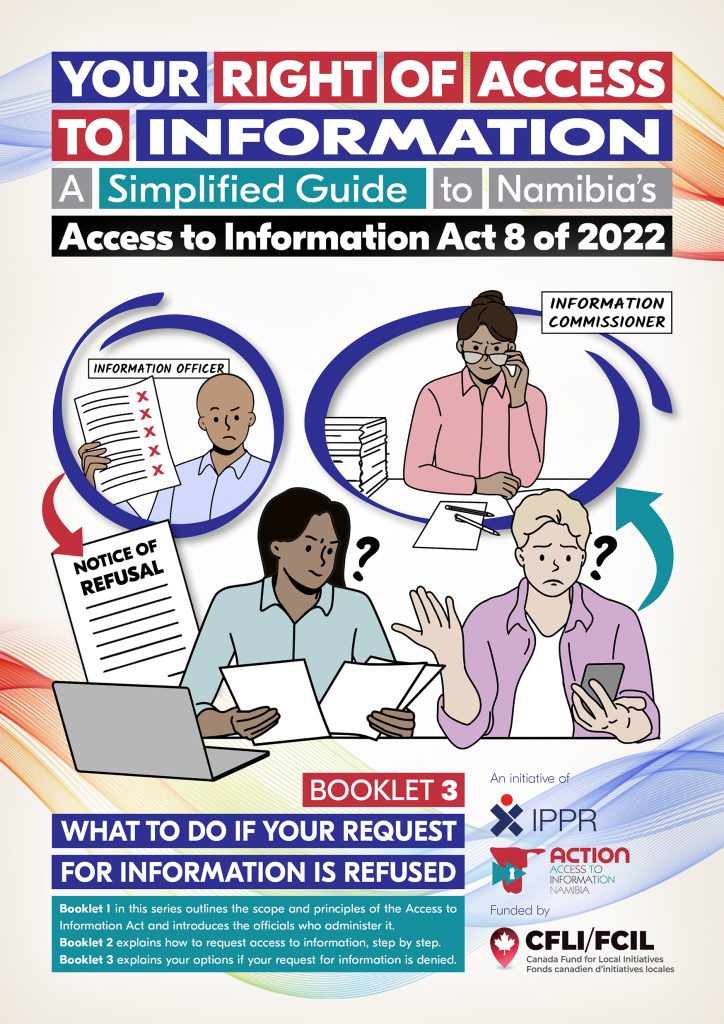
The third in a series of three booklets that explain how the layperson can use the Access to Information Act. This booklet looks at what can be done if your request for information is refused. The first and second booklets in the series are available here and here
Guide to the Access to Information Law #2
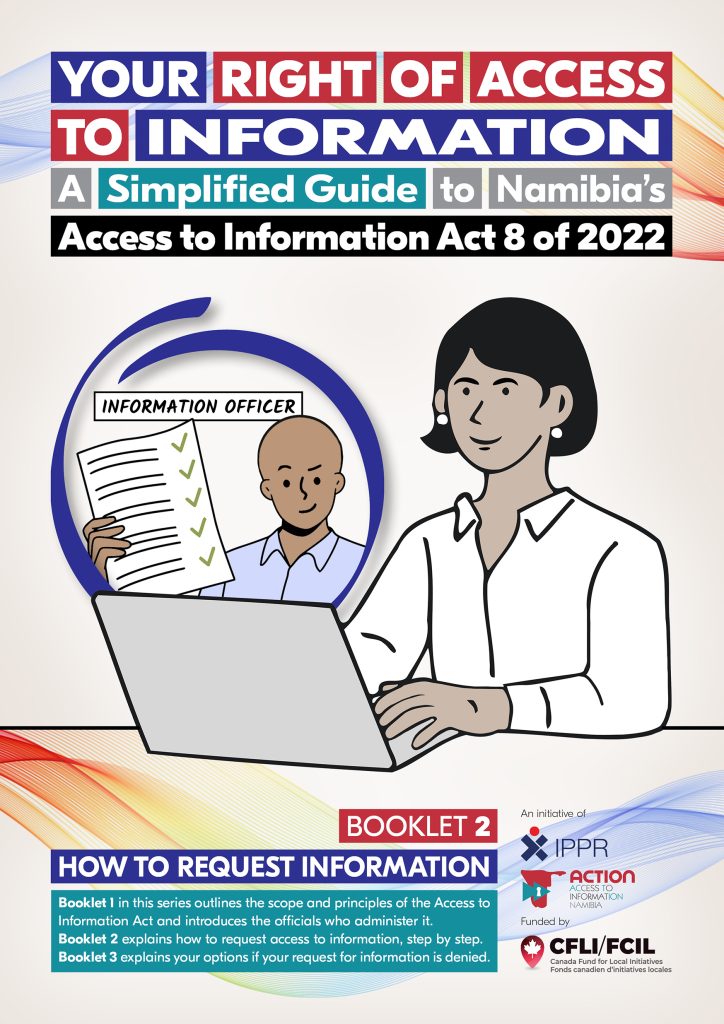
The second in a series of three booklets that explain how the layperson can use the Access to Information Act. This booklet gives a step by step guide to how to request information. The first and third booklets in the series are available here and here
Guide to the Access to Information Law #1
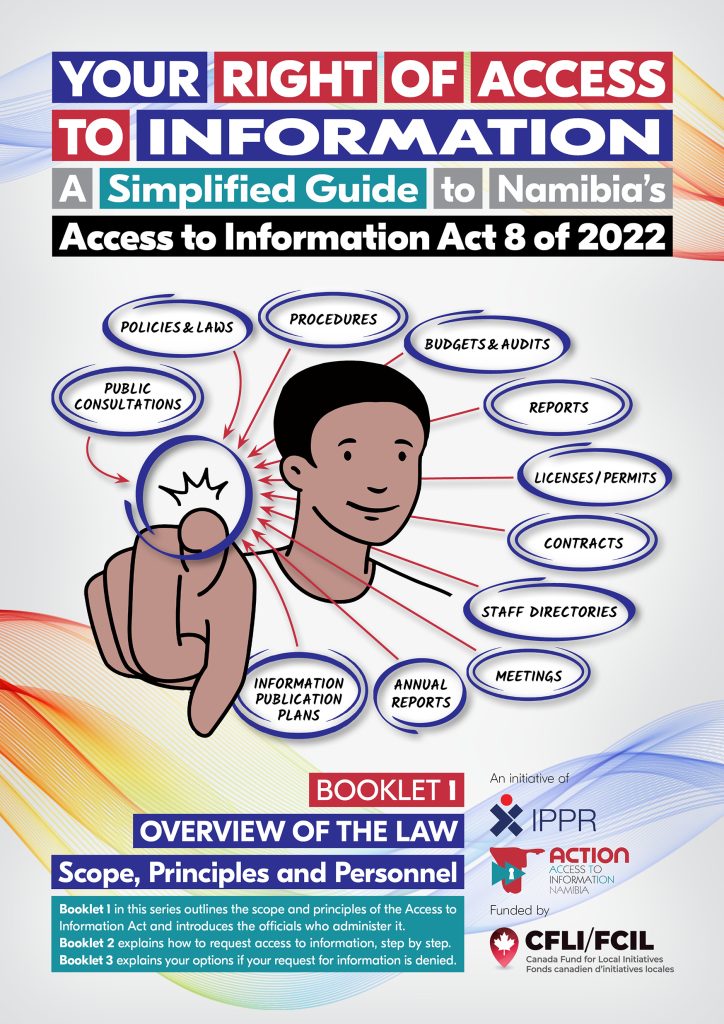
The first in a series of three booklets that explain how the layperson can use the Access to Information Act. This booklet outlines the scope and principles of the law and introduces the officials who administer it. The second and third booklets in the series are available here and here
Local & Regional Councils: Governance Assessment 2022
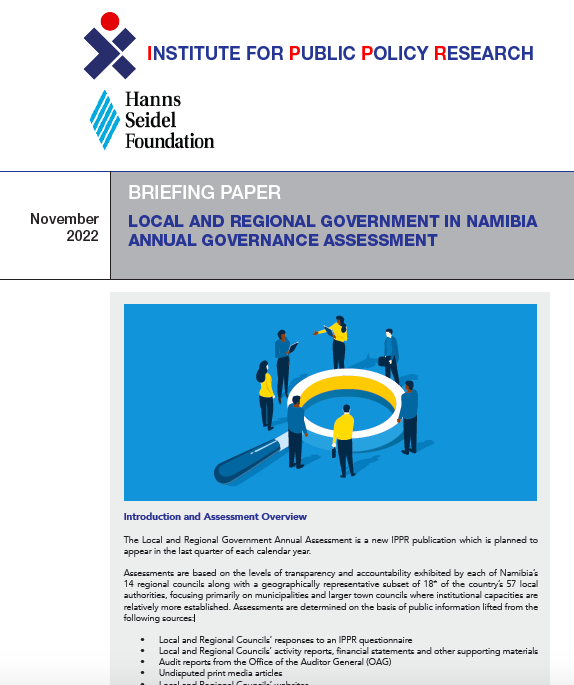
The Local and Regional Government Annual Assessment is a new IPPR publication which is planned to appear in the last quarter of each calendar year. Assessments are based on the levels of transparency and accountability exhibited by each of Namibia’s 14 regional councils along with a geographically representative subset of 18 of the country’s 57 […]
The Opaque World Of Political Party Finance
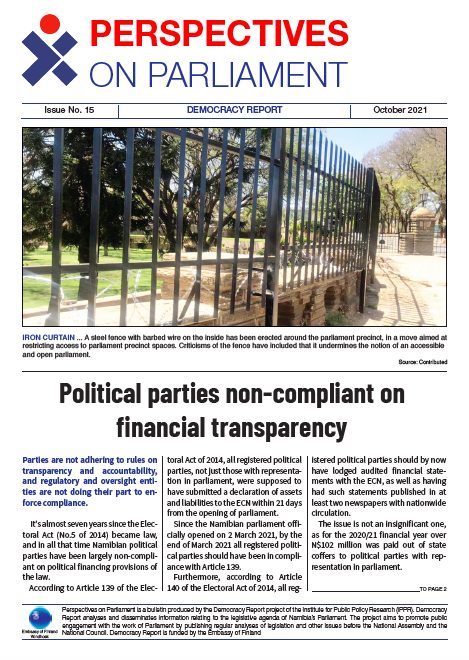
This edition of the IPPR’s Perspectives on Parliament bulletin examines the worrying lack of transparency and accountability that marks political party funding in Namibia. In addition, the publication asks if the current Access to Information bill is up to scratch or if it can still be improved? Also in the spotlight is the dispute over […]
Perspectives on Parliament July 2021
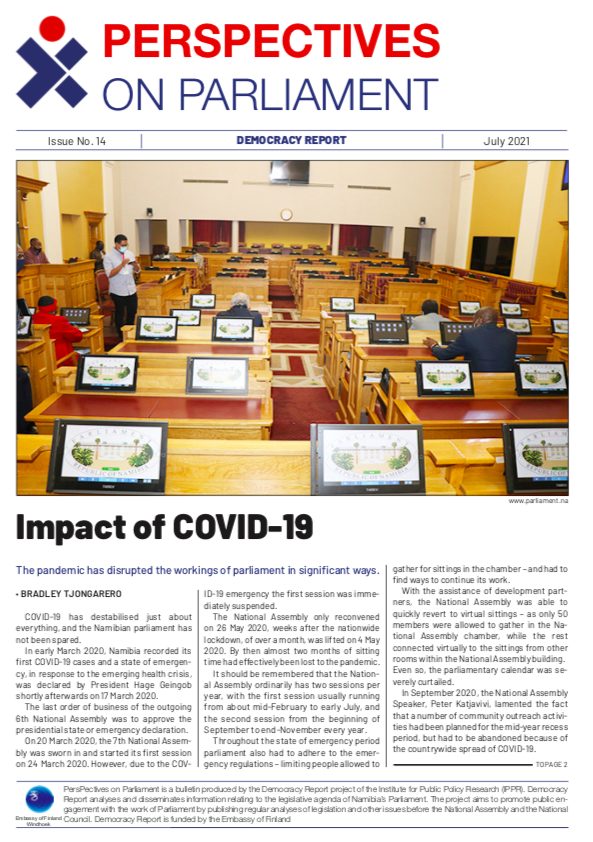
This edition of the IPPR’s Perspectives on Parliament bulletin looks at the impact COVID-19 has had on parliament, asks what has happened to the Access to Information bill, and reviews the recent controversy over genocide reparations. Perspectives on Parliament is part of IPPR’s Democracy Report project which is funded by the Embassy of Finland.
The Right to Freedom of Expression in Namibia
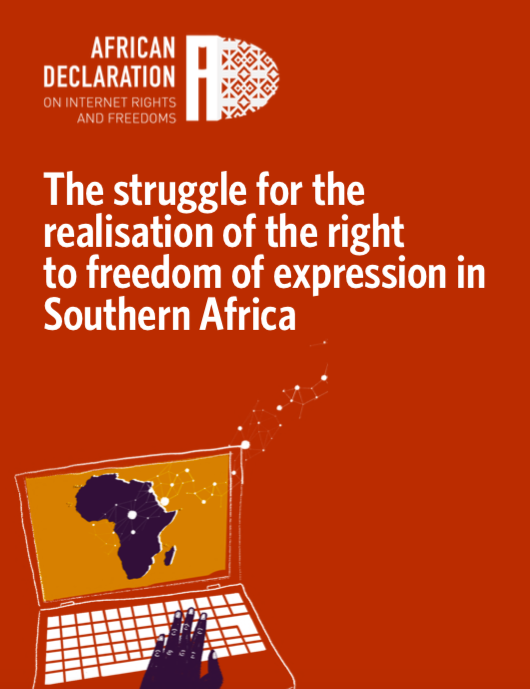
The IPPR contributed a chapter to the new report ‘The Struggle for the Realisation of the Right to Freedom of Expression in Southern Africa’. The chapter focuses on impediments to freedom of expression in the Communications Act, the Protection of Information Act, and the Prevention and Combating of Terrorist and Proliferation Activities Act. The report […]
Namibian Governance Report 2015-20
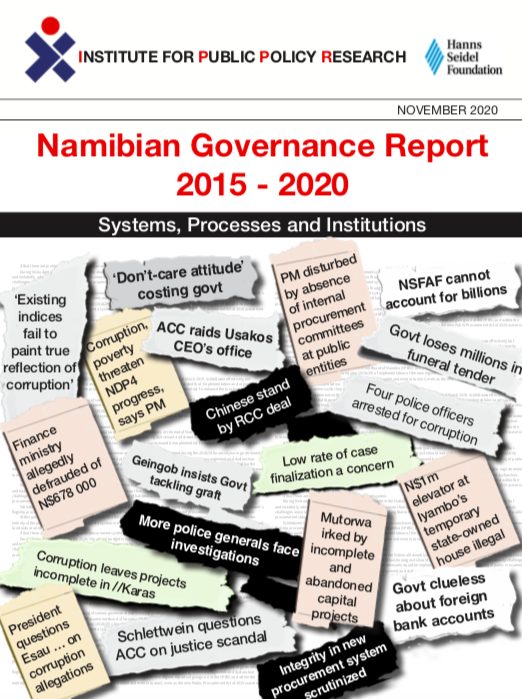
The report sets out to assess the governance record of President Geingob’s first five years in office with reference to two themes that he has proclaimed as central to his intentions to promote good governance: The installing of “robust governance architecture” and Improving systems, processes and institutions. Issues considered include whistleblower protection, access to information, […]
Namibia in the Open Budget Survey
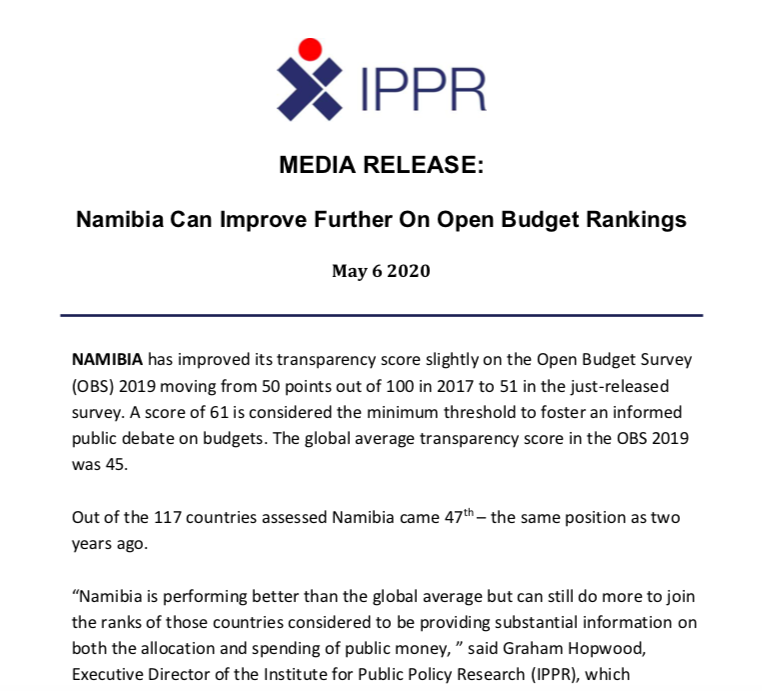
Namibia has improved the transparency and availability of its budget information slightly but offers no formal opportunities for the public to give their views on budget allocations and the execution of spending plans.

